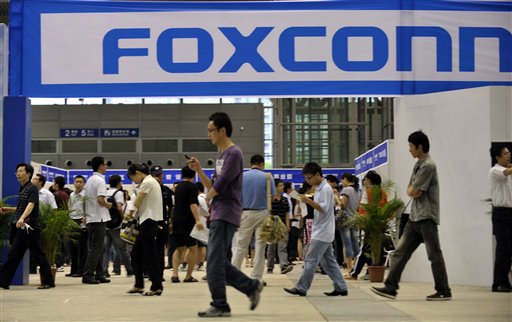Bringing Foxconn — the Taiwanese electronics manufacturer best known for being contracted to produce iPhones — to Wisconsin was the state’s most expensive deal of 2017, according to an analysis by the Milwaukee Journal Sentinel.
Gov. Scott Walker reportedly cut a deal with the company that would cost the state “eight times as much per job as Wisconsin will provide under similar job creation deals struck last year.” According to the analysis, more than $200,000 in state taxpayer money will be spent per job.
As part of the deal, Wisconsin relinquished “nearly all” state income and corporate taxes. $150 million in sales taxes will reportedly be waived. Additionally, the state will pay Foxconn nearly $2.85 billion in tax credits — possibly in cash as a reward if the company creates 13,000 jobs and invests $9 billion in the plant, which will be manufacturing liquid crystal displays for screens.
The local Gannett newspaper analyzed the most expensive 2017 deals where the state of Wisconsin offered tax credits in exchange for jobs created. The analysis found that the state is paying more than the what some states are currently willing to pay Amazon for its second headquarters.
More specifically here’s what it discovered:
- Foxconn’s tax credits— $2.85 billion—accounted for 96 percent of all the credits that the state offered its 2017 deals. However, the deal, according to the analysis, only produced 44 percent of the jobs from the deals analyzed.
- Foxconn has the potential of earning $219,200 per job if it “holds up its end of the deal with Wisconsin.”
- In comparison, Foxconn is reportedly doling out $3.52 of private investments for every $1 in state tax credits—other companies analyzed are at an estimated $14.45 per $1 in state state tax credits.
Democratic state senator Jennifer Shilling called the deal the “largest taxpayer handout to a foreign corporation in U.S. history.”
“This is the largest taxpayer handout out to a foreign corporation in U.S. history and will result in fewer state dollars going to local businesses, schools, and roads, which are essential for long-term community development,” Shilling wrote on Twitter.
Foxconn has long been under scrutiny for its harsh work conditions in its Chinese factories, where factory workers were reported to be clocking in 12 hours a day, six days a week. These work conditions led to a high suicide rate among its workers. In 2010, self-inflicted deaths became a widespread problem that the workers were reportedly being asked to sign “pledges” promising not to harm themselves, and the factory installed suicide nets.
Construction on the Wisconsin factory is expected to begin this year, and the factory may open its doors by 2020.


